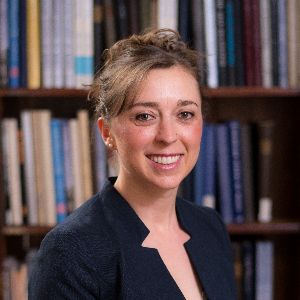
- This event has passed.
Geology & Geological Engineering/ Mining Engineering/ Payne Institute Joint Lecture: Elizabeth Holley, Colorado School Of Mines
February 9, 2023 @ 4:00 pm - 5:00 pm

Elizabeth Holley, Mining Engineering Professor
Joint Geology & Geological Engineering and Mining Lecture
Berthoud Hall 241/ Zoom, 4PM, Thursday, February 9, 2023
Responsible Critical Minerals
Abstract: Policymakers in the United States and worldwide have called for net-zero carbon emissions by 2050 to slow the rate of global warming, but the transition to renewable energy and zero-carbon will be metal and mineral intensive. Demand is forecasted to increase by nearly 500% for some of the elements required for renewable energy and energy storage, such as cobalt, gallium, germanium, indium, tellurium, and vanadium. Although new approaches to generate supply of critical minerals are likely to secure resources and economic benefits, they also carry potential for significant environmental and social impacts, unevenly distributed across landscapes and communities. Through convergence among the paradigms of resource efficiency, sustainable development, and environmental justice, our interdisciplinary team is evaluating three scenarios: 1) new mines targeting a critical element as the main commodity; 2) byproduct recovery of critical elements from existing mining operations; and 3) critical element recovery from historic mine wastes. In this talk I will use case studies to describe some of the challenges and opportunities in each of these mineral development scenarios, highlighting the value of collaboration among geoscientists, engineers, and social scientists.
Bio
Dr. Elizabeth Holley is a mineral exploration and mining geologist. She is an Associate Professor in the Department of Mining Engineering at Colorado School of Mines, with a joint appointment in the Department of Geology and Geological Engineering. She is a Fellow of the Payne Institute for Public Policy and was the 2022 Distinguished Lecturer for the Society of Economic Geologists. Dr. Holley has worked in the mining sector on five continents and contributed to the discovery of the White Gold deposit in the Yukon. She recently finished an NSF Career project on Carlin type gold, and an NSF PIRE project on artisanal mining in Latin America. Dr. Holley leads the Responsible Critical Minerals Initiative funded by the National Science Foundation and serves as a site director for the NSF-funded CASERM center.
This lecture is scheduled in a hybrid format. If you would like to join the meeting please:
Join from PC, Mac, Linux, iOS or Android: https://mines.zoom.us/j/99681173974?pwd=aFZRaFRRMDFIWm5PdU84N1h6OW55dz09
Password: 625728
The Van Tuyl lectures are scheduled at 4-5pm in BE 241/ Zoom (hybrid format), and after the lecture there will be a get-together from 5-6pm in BE 243 with pizza and sodas.
